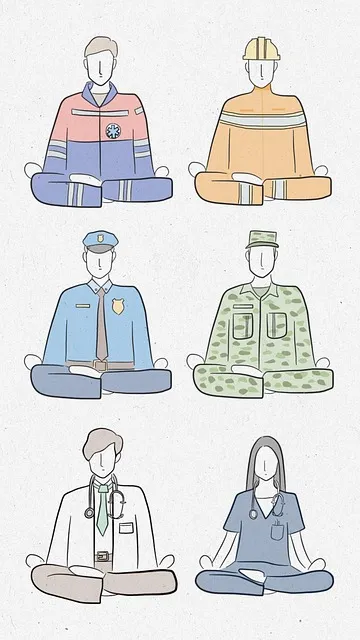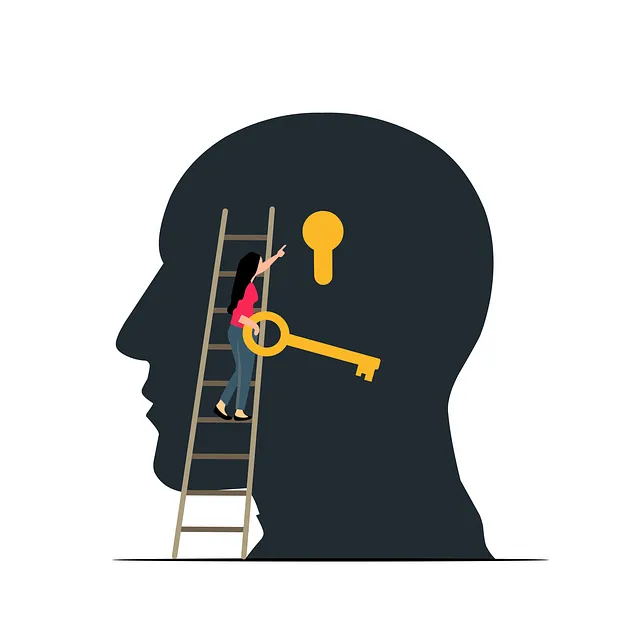Longmont Kaiser mental health programs prioritize resilience as a cornerstone of overall well-being, using the RFM (Recovery, Flexibility, Mastery) framework. Through evidence-based practices like mindfulness, social skills training, and burnout prevention, these programs equip individuals with tools to overcome adversity, adapt to stress, and manage emotions. Their commitment to employee Longmont Kaiser mental health initiatives includes analyzing policy, implementing targeted interventions, and integrating crisis support, fostering a culture of open conversations about mental health. These strategies build resilience, empower individuals to cope with challenges, and enhance both personal and professional well-being.
Resilience is a powerful tool for navigating life’s challenges, and its development can be significantly enhanced through targeted exercises. This article explores how the RFM (Resilience, Flexibility, and Mastery) framework plays a pivotal role in building resilience, with a specific focus on its application within Longmont Kaiser’s mental health programs. We’ll delve into effective strategies and best practices for implementing resilience-building exercises, highlighting their potential to transform lives and foster well-being among participants.
- Understanding RFM and Its Role in Resilience Building
- Designing Effective Mental Health Programs for Longmont Kaiser
- Implementing Resilience Exercises: Strategies and Best Practices
Understanding RFM and Its Role in Resilience Building

Resilience is a vital component of mental well-being, enabling individuals to navigate life’s challenges and setbacks with strength and adaptability. This is where RFM (Recovery, Flexibility, and Mastery) steps in as a powerful framework. Longmont Kaiser mental health programs have recognized the significance of RFM in fostering resilience, particularly in today’s demanding world.
The RFM model offers a structured approach to building resilience by focusing on three key areas: recovery from adversity, flexibility in coping with stress, and mastery over one’s thoughts and emotions. By integrating practices like mindfulness meditation, social skills training, and burnout prevention strategies, Longmont Kaiser programs aim to equip individuals with the tools to bounce back from difficulties, adapt to changing circumstances, and take control of their mental health. This holistic approach is designed to create a strong foundation for overall well-being and resilience in both personal and professional life.
Designing Effective Mental Health Programs for Longmont Kaiser

Longmont Kaiser’s commitment to its employees’ well-being is evident through its dedication to enhancing mental health programs. Effective strategies can be designed by leveraging evidence-based practices and tailoring them to the unique needs of the workforce. A comprehensive Mental Health Policy Analysis and Advocacy initiative could involve assessing current resources, identifying gaps, and implementing targeted interventions. This might include group therapy sessions, peer support networks, and personalized coaching to foster open conversations about mental health.
Integrating resilience-building exercises into these programs is a powerful approach. By providing employees with tools to navigate stress and adversity, Longmont Kaiser can empower them to maintain stability during challenging times. Crisis Intervention Guidance can be offered as part of this process, ensuring that individuals have access to immediate support when facing acute mental health crises. Such initiatives not only benefit individual employees but also contribute to a positive organizational culture, fostering a supportive environment for all.
Implementing Resilience Exercises: Strategies and Best Practices

Implementing resilience exercises is a strategic approach to enhancing individuals’ ability to cope with life’s challenges, promoted by programs like Longmont Kaiser mental health initiatives. These exercises focus on fostering a mindset that enables people to adapt and bounce back from adverse situations, which is crucial in today’s fast-paced world. One effective strategy involves encouraging participants to regularly reflect on their experiences, identifying personal strengths and weaknesses. This introspective process allows individuals to develop coping mechanisms tailored to their unique needs, thereby building resilience over time.
Best practices include incorporating a variety of exercises that cater to different learning styles. For instance, group discussions and role-playing scenarios can facilitate the sharing of experiences and the acquisition of conflict resolution techniques, as advocated in mental health policy analysis and advocacy. Additionally, mindfulness practices and stress management techniques are essential tools for preventing burnout, which can significantly impede an individual’s ability to build resilience. By combining these strategies, Longmont Kaiser mental health programs create an environment that not only equips individuals with practical skills but also fosters a sense of empowerment, ensuring participants can navigate life’s challenges with enhanced resilience.
The implementation of RFM (Resilience, Flexibility, and Mastery) principles in mental health programs, as seen in Longmont Kaiser’s initiatives, offers a promising approach to fostering resilience. By integrating targeted exercises that promote adaptability and personal growth, these programs can significantly enhance the well-being of individuals within the community. This strategic focus on building resilience equips folks with valuable tools to navigate life’s challenges, ensuring they emerge stronger and more resilient. Thus, Longmont Kaiser’s efforts serve as a model for effective mental health support, highlighting the power of RFM in creating a more adaptable and resilient society.






